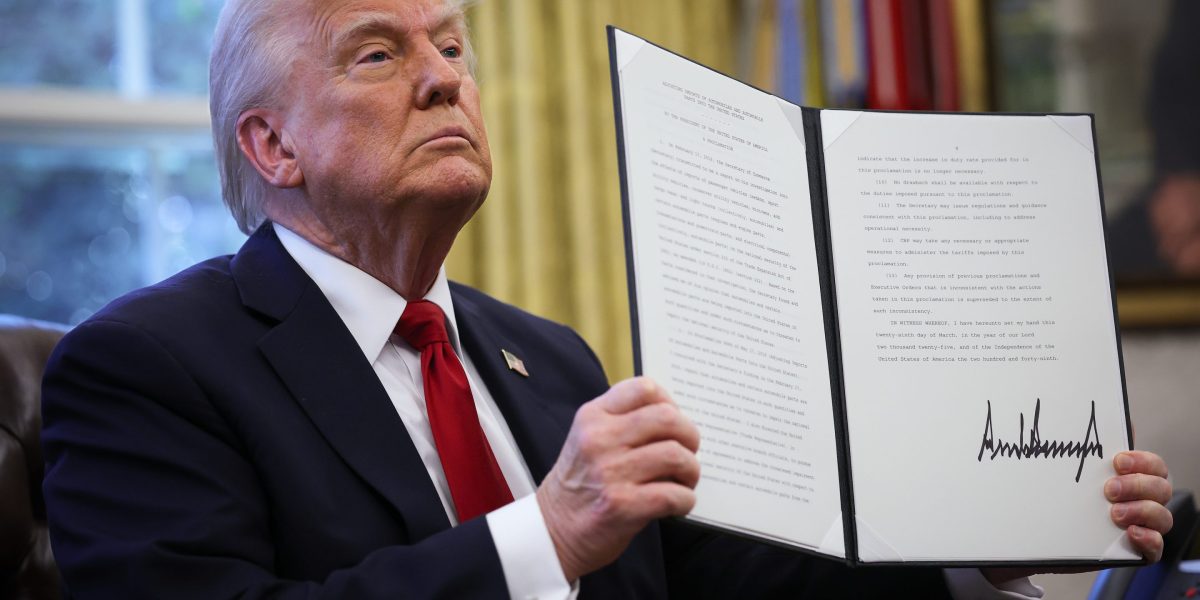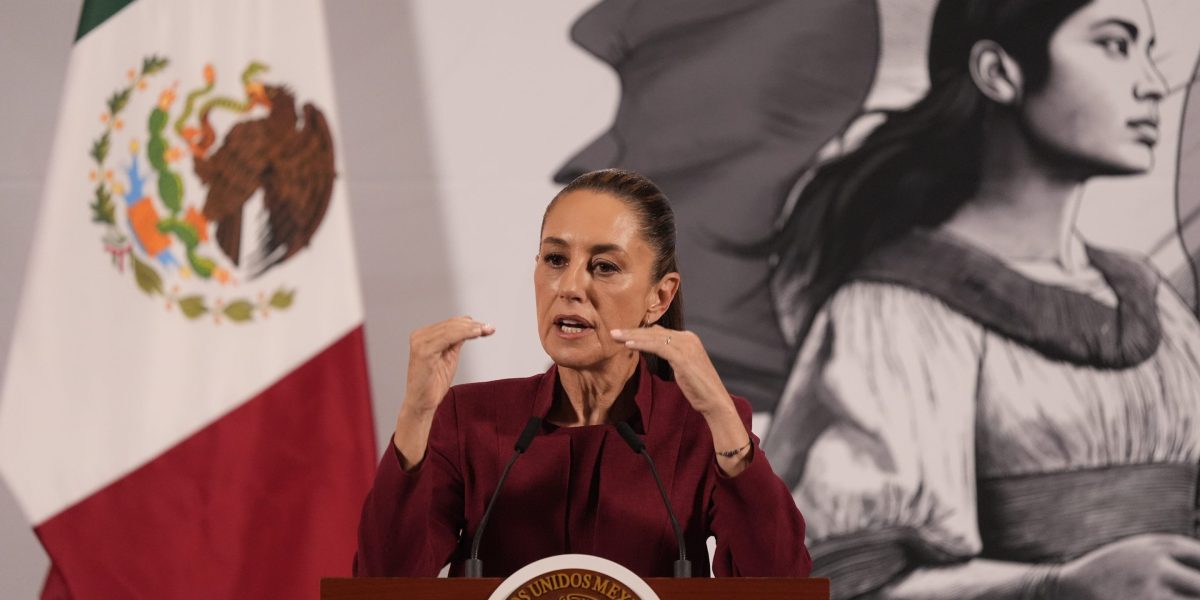- The Trump administration believes auto execs could be tempted to use the tariffs as cover to push through their own hefty price hikes without risking the competitiveness of their U.S. built vehicles. This would be an effective means of balancing out the loss of sales from tariffs placed on their foreign imports. “The math would tell you that’s going to cost us multibillions of dollars,” one executive told the Wall Street Journal. “So who pays for that?”
The White House is afraid automakers could take advantage of next month’s tariffs to arrange an across-the-board price hike on Americans looking to buy a new car.
Come April 3, all new vehicles built abroad will be slapped with a 25% import duty, a cost that will likely be passed on to U.S. consumers. Since this affects roughly half the cars sold in the country, companies like General Motors could use the tariff increase as cover to increase their prices on domestically-built vehicles as well.
To mitigate the threat of an across-the-board increase in car prices, President Donald Trump held a phone call with management from the top automakers in the country, warning them not to use the tariffs as an excuse to raise prices on domestic cars.
In it, Trump told the executives that the White House would look unfavorably on such a move, leaving some of them rattled and worried they would face punishment if they increased sticker prices, according to the Wall Street Journal report citing people with knowledge of the call.
“The math would tell you that’s going to cost us multibillions of dollars,” one executive told the paper. “So who pays for that?”
The Trump administration did not reply by press time to a request from Fortune for comment.
Rising car prices a major factor behind pandemic inflation
In the aftermath of the COVID-era semiconductor crunch that began in early 2021, the lack of supply of new cars sent prices soaring by roughly 20%, and even more for used cars, and to this day they remain elevated over their long term average.
Together they were a major driver behind the post-pandemic bout of inflation that scarred Americans, helping return Trump return to the Oval Office. A key promise of the Trump campaign was a pledge to lower the cost of living for everyday Americans.
The White House has squared the circle by claiming tariffs are a tax on foreign countries, a kind of IRS only in this case the rest of the world pays.
Much of the economics profession has repudiated this claim, however, and American consumers will soon find out if they are correct.
Once the industry’s stockpile of imported cars and parts is depleted, the Trump tariffs could add $4,711 to the cost of a vehicle under the new rules, according to an estimate from celebrated supply-side economist Arthur Laffer, a favorite among pro-business Republicans.
Using that math, carmakers would be in a position to increase the price of a U.S.-built vehicle by $4,000 and still remain below the direct competition. The added profit could help offset the potential loss of sales for Mexican-built cars for companies like General Motors and Stellantis
Trump: stagnant U.S. car production poses a threat to security
How did Trump manage to impose such steep tariffs unilaterally? The administration availed itself of a legal loophole.
“Automobiles and certain automobile parts are being imported into the United States in such quantities and under such circumstances as to threaten to impair the national security of the United States,” the White House said, adding that the U.S. share of global auto production has stagnated over the past six years.
Arguing foreign cars that cross the border somehow pose a danger to the world’s richest and most powerful country is not an obvious argument for many. Without it, however, Trump would need Congress to implement the tariffs, since the Constitution places responsibility for tariffs and trade under the purview of the legislative branch of government.
The only exception to the rule is Section 232, which allows the executive to restrict imports strictly when there is a national security theat.
Trump’s solution is to argue that countries like Australia, which imports all of its motor vehicles after the last domestic production site closed in late 2017, are strategically vulnerable due to the loss of a portion of its heavy industry.
“Only about half of the vehicles sold in the United States are manufactured domestically, a decline that jeopardizes our domestic industrial base and national security,” the White House said.
This story was originally featured on Fortune.com
Source link

 Entertainment8 years ago
Entertainment8 years ago
 Politics8 years ago
Politics8 years ago
 Entertainment8 years ago
Entertainment8 years ago
 Entertainment8 years ago
Entertainment8 years ago
 Tech8 years ago
Tech8 years ago
 Tech8 years ago
Tech8 years ago
 Tech8 years ago
Tech8 years ago
 Politics8 years ago
Politics8 years ago







